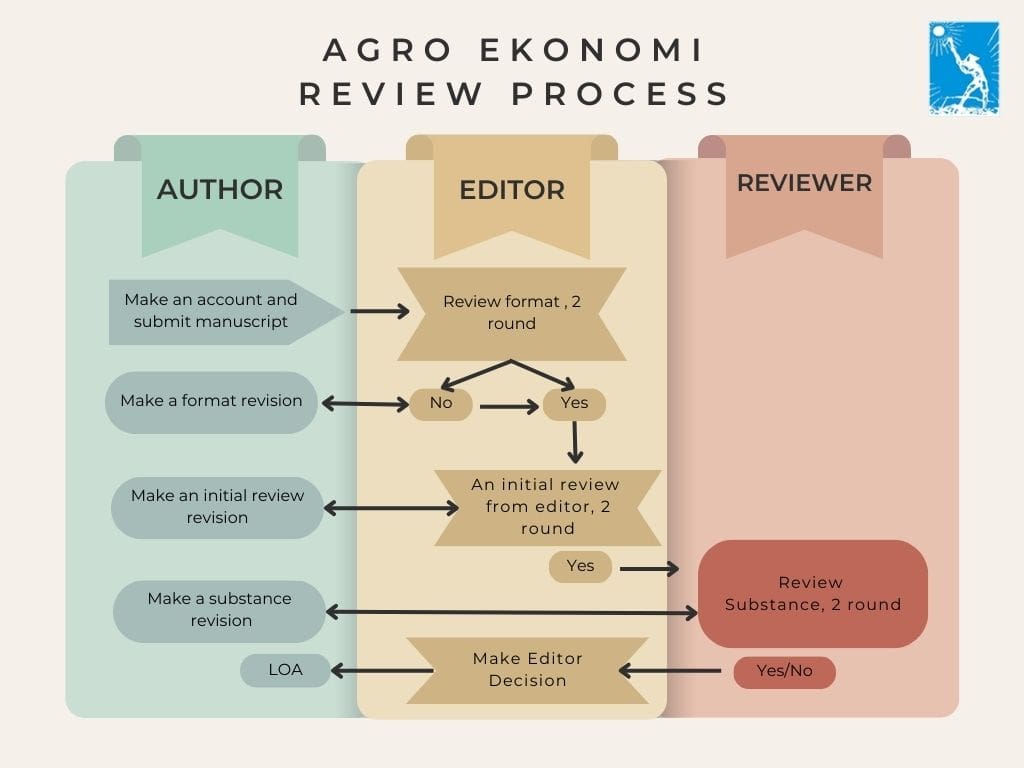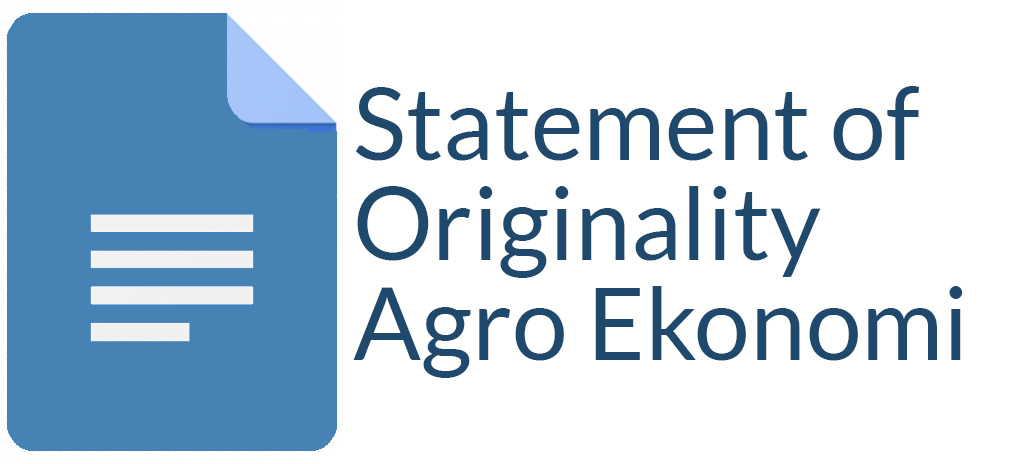Sensitivitas Produksi Padi Terhadap Perubahan Iklim Di Indonesia Tahun 1974-2015
Yanti Nurhayanti(1*), Moko Nugroho(2)
(1) Program Pascasarjana Ilmu Ekonomi, Universitas Indonesia
(2) Program Pascasarjana Ilmu Ekonomi, Universitas Indonesia
(*) Corresponding Author
Abstract
The occurrence of climate change disrupts the productivity of paddy in Indonesia. Disruption of the paddy’s production has an impact on the availability of foodstuffs, considering paddy as staple food Indonesia society. This study aims to analyze the impact of climate change on productivity of paddy in the central acreage of paddy in period 1974-2015 by using four different climate variables. The data used are secondary data collected from Agency of Central for Statistics (BPS), Ministry of Agriculture, and National Oceanic and Atmospheric Administration (NOAA). Estimation method using data panels with Random Effect models (REM). The results showed the productivity of paddy in Indonesia are more sensitive to changes in rainfall and maximum temperature (Tmax) compared to the average temperature (Tave) and the minimum temperature (Tmin). Increased rainfall and Tmax positively impact the productivity of paddy until a specific turning point, then after that point will give the opposite impact. As for the turning point for the precipitation of 10,177 Inc./year, while Tmax on 31,35 °C. Simple simulation results demonstrate the increase in rainfall in the upper turning point of 1 % will reduce the productivity of paddy amounted 0,00796 % ceteris peribus. While the maximum temperature rise above the turning point of 1 % will reduce the productivity of paddy as much as 0,09039% ceteris peribus.
Keywords
Full Text:
PDFReferences
Auffhammer, et. al. 2006. Integrated model shows that atmospheric brown clouds and green houses gases have reduced rice harvest in India. PNAS 103(52) : 19668-19672
Burke, MB., et. al. 2009. Warming Increase The Risk of Civil War in Africa. PNAS 106 (49) : 20670-20674.
Deschenes , O., et. al. 2007. The economic impact of climate change : Evidence from agricultural profits and random fluktuations. The American Review 97(1) : 354-385.
Hsiang, SM., et. al. 2013. Quantifyng The Influence of Climate Human Conflict. Science 341 (6151) : 1235367.
Hsiang, SM., Burke, M. 2014. Climate, Conflict and Social Stability : What the Evidence Say? Clim Change, 123(1): 39-55.
Kementerian Pertanian. 2012. Pengembangan Asuransi Usaha Tani Padi untuk Antisipasi Perubahan Iklim. Warta Penelitian dan Pengembangan 34(2) : 16-18.
Mendelson , R., et. al. 1994. The impact of global warming on agriculture : A Ricardian Analysis. The American Economic Review 84 (4) : 753-771.
O’Louglin J., et. al. 2012. Climate Variablility and Conflict Risk in East Afrika : 1990-2009. PNAS 109(45) : 18344-18349.
Oury, B. (1965). Allowing for Weather in Crop Production Model Building . Journal of Farms of Economic 47 (2) : 270-283.
Peng, S., et.al. 2004. Rice Yield Decline With Hight Night Temperature From Global Warming. PNAS 101: 229-238
Scheffran, J., et.al. 2012. Climate Change and Violent Conflict. Science 336 (6083) : 869-871
Schlenker, W., et. al. 2004. The impact of global warming on U.S agricultures : An Econometric analysis of optimal growing condition. University of California at Barkeley.
Schlenker, W., and Roberts, M. J. (2009). Nonlinear Temperature Effects Indicates Severe Damages to U.S. Crop Yields Under Climate Change. PNAS 106 (37) : 15594-15598.
Surmaini, E., et. al. (2011). Upaya Sektor Pertanian dalam Menghadapi Perubahan Iklim. Jurnal Litbang Pertanian 30 (1) : 1-7
Tack, J., et. al. 2015. Effect of warming teperatures on US Wheat Yields. PNAS 112 (22) : 6931-6936.
Wasman, R., et. al. 2009. Climate Change Affecting Rice Production. Adv.Agron 101 : 59-122
Welch, JR., et.al. 2010. Rice Yields in Tropical/Subtropical Asia Exhibit Large but Opposing Sensitivities to Minimum and Maksimum Temperatures. PNAS Vol. 107 (33) : 14562-14567.
Article Metrics
Refbacks
- There are currently no refbacks.
Copyright (c) 2017 Agro Ekonomi

This work is licensed under a Creative Commons Attribution-ShareAlike 4.0 International License.
Statcounter View My Stats











